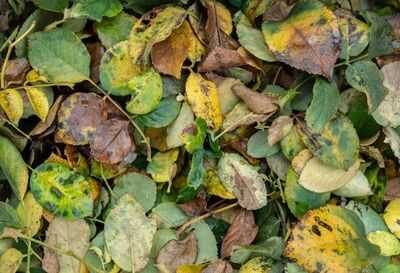Autumn marks the season when gardeners brace themselves for the frigid conditions on the horizon, yet they might not recognise that this period can also pose significant risks to roses.
Roses become susceptible to fungal problems once the weather turns considerably wetter. These infections proliferate through dampn and black spot is amongst the most severe conditions that may develop. Black spot earns its name from the dark patches that form on leaves before they turn yellow and die. Once it infiltrates a garden, it proves challenging to remedy and tends to return annually.

This ailment causes leaves to drop from rose plants, which substantially weakens them. With fewer leaves, roses cannot accumulate enough energy for winter, making plants more prone to dying.
Nevertheless, black spot proves remarkably straightforward to prevent provided you establish the routine of completing one basic gardening task throughout autumn.
Callan Harvey, a horticultural specialist from Garden Benches, has explained that a natural method to ward off black spot involves simply maintaining the soil surrounding your roses.
He explained: "Regularly pick up and destroy fallen leaves that may harbour spores. During pruning, remove any stems showing signs of infection."
Black spot spores can survive for a long time on decomposing vegetation. When abandoned on the ground, they may lie dormant during winter before infecting plants again once spring returns.
The spores disperse when it rains. They cause infection when water splashes onto the fallen leaves and then back into the soil around a rose plant.
Taking the time to collect leaves in your garden will reduce the number of spores and enhance the air circulation around roses, making it less likely for the fungus to grow.
Applying a natural mulch like bark or wood chips around roses can also be beneficial, as this will shield the soil from rain splash and prevent the spread of spores.
If you're genuinely concerned about black spot, there are natural remedies available to kill the spores, such as baking soda, neem oil, and even milk, which may sound odd but is effective.
However, simply strolling around your garden and collecting leaves is a low-effort yet highly effective method of keeping spores away from roses, ensuring they remain healthy this autumn all the way through the next growing season.
You may also like

Priyanka Chaturvedi criticises Udit Raj over caste angle in bungalow eviction row

F1 fans spot Fernando Alonso hand gesture to Lewis Hamilton missed by TV at Mexico GP

Chris Pratt shares experience of working with LAPD in new film

Warning issued to UK households with a wood burner this winter

Telangana and Andhra BJP to jointly work for victory in Jubilee Hills by-poll






